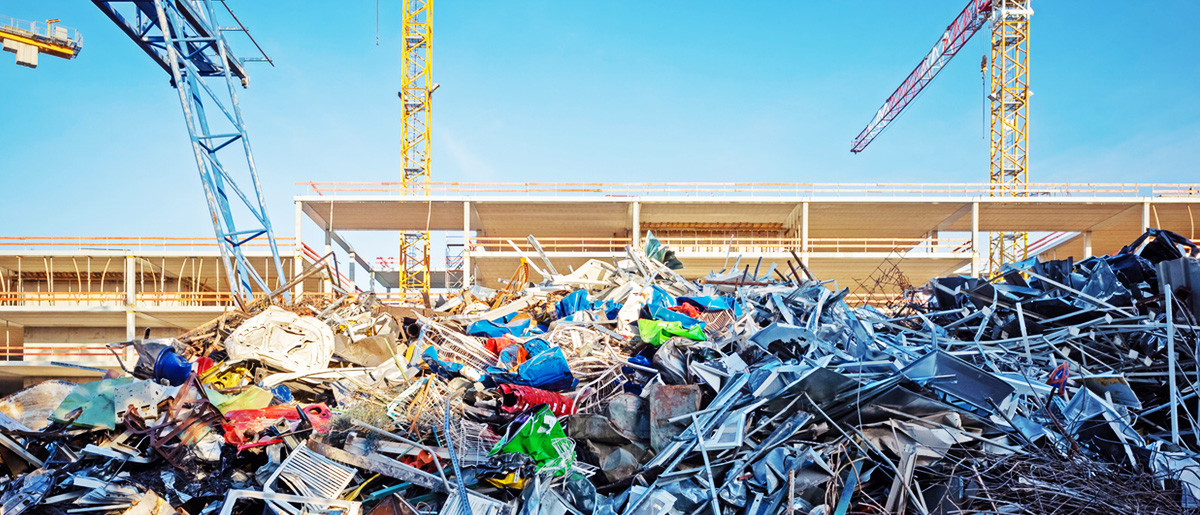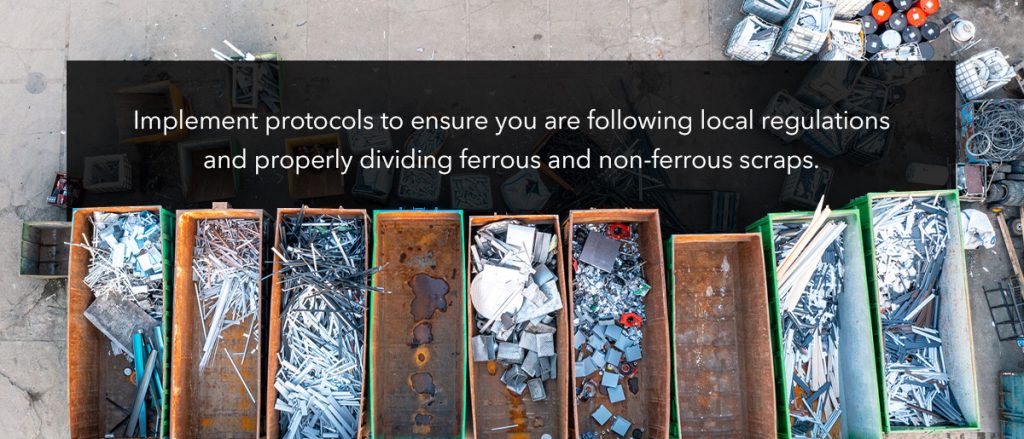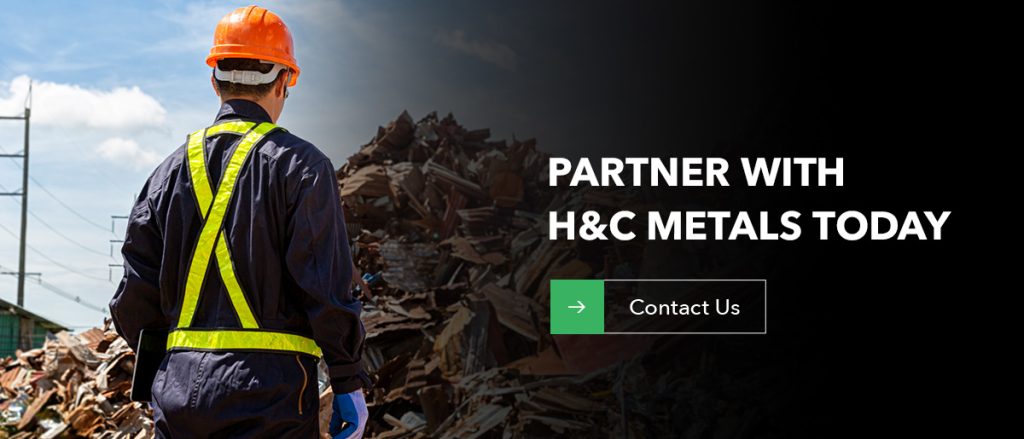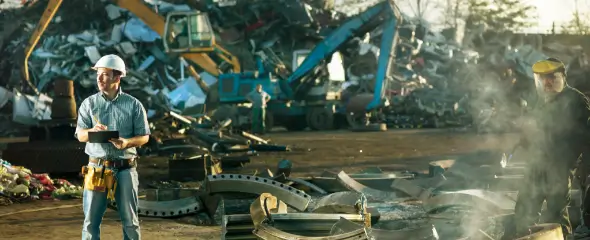
In the bustling construction world, managing scrap materials efficiently is an environmental responsibility and a business necessity. Inappropriate disposal of construction and demolition (C&D) waste contributes to greenhouse gas generation and impacts the environment with the production of new materials.
This article discusses seven effective construction scrap management strategies to ensure compliance, cost savings and increased efficiency.
What Is Construction Waste Management?
Construction waste management refers to how companies, site managers, and crews deal with scrap and waste on construction sites. The goal is to reduce the amount of waste that’s sent to landfills, properly identify materials for recycling or reuse, and increase site efficiency.
The key elements of construction scrap management include:
- Planning: Understand what materials need to be disposed of and make a plan for them, including identifying any recyclable materials and hazardous waste.
- Waste segregation: Introduce proper sorting and storage processes and take measures to prevent contamination.
- Collection or transportation: Arrange for waste collection or transportation to the proper facilities.
Some of the most common types of waste on construction sites include metals like aluminum, copper, steel, iron, and tin. You can sell this scrap metal to recycling companies, which keeps these materials out of landfills and results in cost savings for your operations.
6 Waste Reduction Strategies for Construction Sites
Effective scrap management at construction sites is ecologically and economically sound. By implementing these strategies, your company can reduce waste, lower disposal costs, and operate sustainably.
1. Create a Scrap Management Plan
Design a scrap management plan that allows you and your employees to follow a streamlined process to properly handle and recycle metal scraps at the construction or demolition site. This plan should include:
- Procedures: Step-by-step guidelines for collecting, sorting, and recycling the different types of waste.
- Responsibilities: Roles and responsibilities of each member participating in the scrap management plan.
Using a software solution can help you streamline the management process, track and analyze results, and reduce the time you spend on logistics.
2. Invest in Employee Training for Better Scrap Management
Educating your workforce on the importance of metal scrap sorting and proper disposal can significantly enhance the effectiveness of your recycling program. Training should cover identifying different types of materials, proper handling techniques to prevent contamination, and the environmental and economic benefits of recycling.
Informed employees are more likely to participate actively in metal recycling efforts, which can lead to better outcomes for your business and the environment.

3. Identify and Segregate Scraps
Begin by assessing and identifying the different metal waste types and their quantities. Implement protocols to ensure you are following local regulations and properly dividing ferrous and non-ferrous scraps. Ferrous metals contain iron and are magnetic, while non-ferrous metals don’t have iron and resist corrosion. Ferrous metals are more abundant, and thus, the price for them is generally lower. However, higher demand for non-ferrous metals can cause pricing to fluctuate significantly.
4. Implement Effective Collection and Storage Processes
A streamlined collection process is vital for managing construction scrap efficiently. This includes having designated collection points for different types of materials and ensuring these are clearly marked to avoid contamination— metal recycling dumpsters provide a flexible solution for sorting and storing your scrap metal.
Efficient sorting at the source speeds up the recycling process and increases the value of scrap materials. Schedule regular pick-ups and clean-ups to prevent waste accumulation and keep the construction site safe and organized.
5. Partner With Reliable Recycling Services
Choosing the right recycling partner is important for effectively managing construction scrap. A reliable scrap metal recycling service will process your waste responsibly and can also help you comply with local regulations and standards.
Partnering with an experienced and local commercial recycling company ensures that your metal waste is handled with environmental responsibility. They will take care of the whole process from pickup to recycling, so you don’t have to worry.
6. Review and Refine Your Construction Site Scrap Management Plan
Review practices regularly to maintain an efficient construction scrap management plan. This includes analyzing the effectiveness of your recycling processes and staying updated on the latest construction waste management technologies and regulations. Continuous improvement will help you adapt to changing conditions and optimize your strategy.
The Benefits of Scrap Metal Recycling
Scrap metal management is crucial for the environment. Every year, millions of metric tons of domestic steel are recycled, reducing waste that ends up in landfills. Having a strategy to manage your metal waste also benefits your company.
- Cost savings: Metal scrap management reduces transportation expenses and landfill fees, and by selling and recycling metal scraps, you can generate revenue.
- Operational efficiency: Metal scrap management helps reduce the time spent collecting, sorting, and handling waste, allowing you to focus on construction or demolition tasks.
- Regulatory compliance: Partnering with a reliable metal scrap management service ensures compliance with federal and local regulations.
- Environmental sustainability: Recycling metal scraps diverts waste from landfills, reducing energy and new material consumption. This positively impacts your carbon footprint and can help you reduce costs.
- Enhanced market competitiveness: Sustainable practices have a positive impact on how your clients perceive you. It can help you attract environmentally conscious clients.
The recycling industry also helps create new jobs and generates state and local taxes. The C&D industry is the second-largest contributor to this phenomenon.

Partner With H&C Metals Today
Our family-owned business, founded in 1976, specializes in tailored commercial metal recycling solutions. For 50 years, we’ve partnered with Newark, New Jersey businesses and are experts at managing industrial scraps from small to larger projects.
Our team facilitates the removal of ferrous and non-ferrous metal scrap, including handling and transportation. We pick up, process, and recycle a wide range of construction materials, making recycling hassle-free for our clients.
We are committed to providing you with environmentally responsible and profitable recycling solutions. When you partner with H&C Metals, you get effective metal waste management and top-of-the-line customer service. Let us manage your metal scrap. Contact us or schedule a pickup today.


